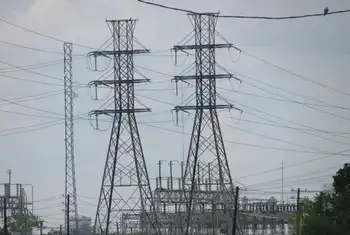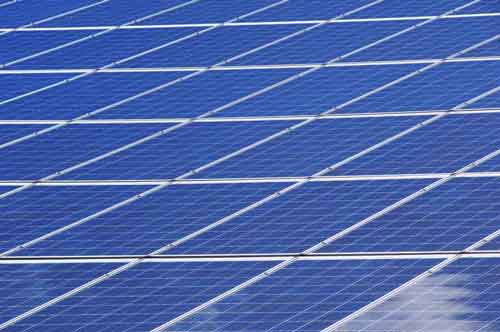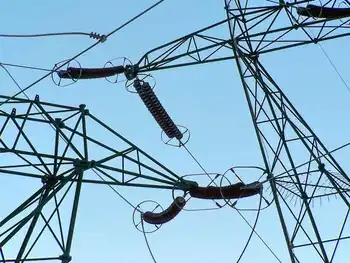France to host experimental nuclear fusion reactor
PARIS, FRANCE - France was chosen as the home for an experimental $13 billion (U.S.) nuclear fusion project scientists say will produce a boundless source of clean and cheap energy.
A consortium of United States, the European Union, China, Russia, Japan had been divided over whether to put the test reactor in France or Japan, and competition was intense. The U.S. had favoured placing the plant in Japan. At stake was billions of dollars for research, construction and engineering.
The threat of global warming has brought nuclear power — currently available only through fission and long out of favour — back to the forefront as a way of generating energy because it creates no so-called greenhouse gases, a cause of global warming.
Nuclear fission — with heat as a byproduct — occurs when heavy atoms such as those of uranium or plutonium are split. But the process leaves behind highly radioactive waste, and the reactors can catastrophically melt down.
Harnessing fusion as an energy source has long been a dream of physicists because it would be safer, cleaner and cheaper — using naturally abundant hydrogen as an energy source.
The major source of energy right now, the burning of fossil fuels such as coal and oil, spews greenhouse gases into the Earth's atmosphere and trap the sun's heat. Oil supplies are expected to begin running short in about 50 years.
As a replacement, fusion would produce much more energy than fission, while leaving behind small amounts of relatively harmless waste and posing no danger of a nuclear meltdown.
France's Greens and other environmentalist groups argue, however, that the fusion project will turn the focus away from the immediate need to fight global warming.
"This is not good news for the fight against the greenhouse effect, because we're going to put $13 billion toward a project that has a term of 30-50 years, when we're not even sure it will be effective," Greens party legislator Noel Mamere said on France-Info radio.
But U.S. State Department spokesman Tom Casey said the Washington was pleasedthe sides had agreed on a site. "Now the six partners will work together to resolve the other various technical and legal questions that exist so we can move forward on this critically important energy experiment," he said.
Participants will now negotiate the construction details and sign a final agreement, hopefully by year's end.
The project is expected to create 10,000 jobs and take about eight years to build.
But fulfilling the long-term vision of the International Thermonuclear Experimental Reactor, as it is called, could take decades.
Cadarache, in the southern region of Provence, was chosen during talks in Moscow after Japan, which had sought the project, reportedly backed down, agreeing instead to a bigger role in research and operations.
If all goes well with the experimental reactor, officials hope to set up a demonstration power plant in Cadarache around 2040. Officials project that as much as 20 per cent of the world's energy could come from fusion by the century's end, said Raymond Orbach, the U.S. Department of Energy's office of science director.
President Jacques Chirac called the decision "a great success for France, for Europe and for all of the partners" in the project.
"The international community will now be able to take on an unprecedented scientific and technological challenge, which opens great hopes for providing humanity with an energy that has no impact on the environment and is practically inexhaustible," he said.
Russia, China and the European Union wanted to locate the plant at Cadarache. The EU argued that Cadarache, one of the biggest civil nuclear research centres in Europe, has existing technical support facilities and expertise, thus reducing the risks.
Japan, the United States and South Korea wanted the facility built at Rokkasho in northern Japan.
The United States — which is funding 10 per cent of construction and considers fusion an important part of its long-term energy plans — had backed Japan's site because it was closer to a port, said Orbach.
"We made it clear from the very beginning that our technical preference was for the Japanese site, but that we would support what was finally (agreed) upon," he said.
"We are all dealing with the question of how to address a sustainable and also environmentally friendly energy source for the future, and fusion is extremely promising," EU Research Commissioner Janez Potocnik said.
Japanese newspaper reports said Tokyo was prepared to give up hosting the project in return for a bigger research and operations role. The deal concluded assured Tokyo of that.
Related News

5 ways Texas can improve electricity reliability and save our economy
DALLAS - The blackouts in February shined a light on the fragile infrastructure that supports modern life. More and more, every task in life requires electricity, and no one is in charge of making sure Texans have enough.
Of the 4.5 million Texans who lost power last winter, many of them also lost heat and at least 100 froze to death. Wi-Fi stopped working and phones soon lost their charges, making it harder for people to get help, find someplace warm to go or to check in on loved ones.
In some places pipes froze, and people couldn’t get water to drink…




